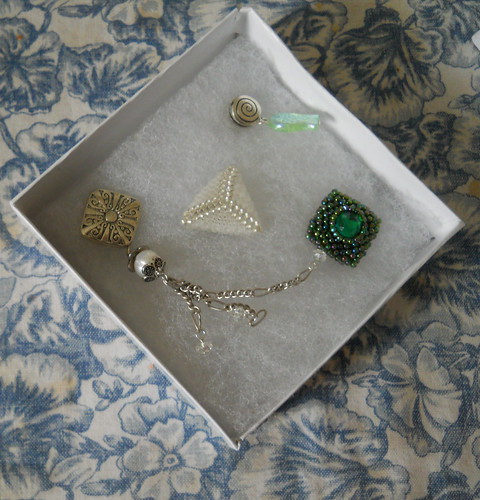Ancillary Sword
Sep. 9th, 2015 05:40 pmI've been waiting to read Ancillary Sword until I could do it book-group style with the ninja girl. The chance presented itself at the end of last month, and we both finished it the other day and were discussing it avidly via messages this morning.
The reviews I read said that it was a very different sort of book from the first--quieter--but the reviewers all liked it as much as or better than the original. I enjoyed it tremendously (I carried it with me everywhere so I could read in spare moments), but I didn't like it better. I kept on wanting things that didn't come (for those of you who've read the book, that would be more about Tisarwat's unique situation and more about Translator Dlique, plus something more central that I'll get to in a moment), and I was bemused by much of what did come. The situation on the Athoek was interesting, and Ann Leckie did a great job of showing how different groups have different interests, and showing how personal situations intersect with bigger issues (how the personal is political, heh), but those bigger issues were (to my mind) predictable. I felt a little as if I was looking in on a sociology case study that promised to hit on X, Y, and Z points. It did, and the details of how it did were gripping, but I chafed a little.
Some of that teacherliness was present in Ancillary Justice, too, but I completely forgave it/wasn't bothered by it--why? And why not this time? Part of it is personal idiosyncrasy--I loved small details of life on Ors and life on Nilt and found them so vivid that the instructive elements paled. But much, much more important, I loved getting to know Breq and shared entirely in her personal pain and loss. The driving emotion that propels her through Ancillary Justice was so, so intense.
In Ancillary Sword, Breq has only brief (though very memorable, and very moving) moments of emotion. She's affected by the pain and suffering she sees, but it's not hers in the way that it was in the first book. I missed that. I know it couldn't be repeated ... but all the same, I missed it.
I'm mystified and deeply, deeply curious about what will happen in Ancillary Mercy. Ancillary Sword felt like a book that you might get if there were going to be nine or ten stories about Breq and the other characters--it touched on the larger issues that Ancillary Justice raised, but it doesn't advance them very much. A few new elements come into play. How will the trilogy wrap up? I can't wait to find out!
ETA: Just read the Goodreads book summary for Ancillary Mercy and it sounds like it'll focus on the stuff I want to know more about--yay!
The reviews I read said that it was a very different sort of book from the first--quieter--but the reviewers all liked it as much as or better than the original. I enjoyed it tremendously (I carried it with me everywhere so I could read in spare moments), but I didn't like it better. I kept on wanting things that didn't come (for those of you who've read the book, that would be more about Tisarwat's unique situation and more about Translator Dlique, plus something more central that I'll get to in a moment), and I was bemused by much of what did come. The situation on the Athoek was interesting, and Ann Leckie did a great job of showing how different groups have different interests, and showing how personal situations intersect with bigger issues (how the personal is political, heh), but those bigger issues were (to my mind) predictable. I felt a little as if I was looking in on a sociology case study that promised to hit on X, Y, and Z points. It did, and the details of how it did were gripping, but I chafed a little.
Some of that teacherliness was present in Ancillary Justice, too, but I completely forgave it/wasn't bothered by it--why? And why not this time? Part of it is personal idiosyncrasy--I loved small details of life on Ors and life on Nilt and found them so vivid that the instructive elements paled. But much, much more important, I loved getting to know Breq and shared entirely in her personal pain and loss. The driving emotion that propels her through Ancillary Justice was so, so intense.
In Ancillary Sword, Breq has only brief (though very memorable, and very moving) moments of emotion. She's affected by the pain and suffering she sees, but it's not hers in the way that it was in the first book. I missed that. I know it couldn't be repeated ... but all the same, I missed it.
I'm mystified and deeply, deeply curious about what will happen in Ancillary Mercy. Ancillary Sword felt like a book that you might get if there were going to be nine or ten stories about Breq and the other characters--it touched on the larger issues that Ancillary Justice raised, but it doesn't advance them very much. A few new elements come into play. How will the trilogy wrap up? I can't wait to find out!
ETA: Just read the Goodreads book summary for Ancillary Mercy and it sounds like it'll focus on the stuff I want to know more about--yay!









